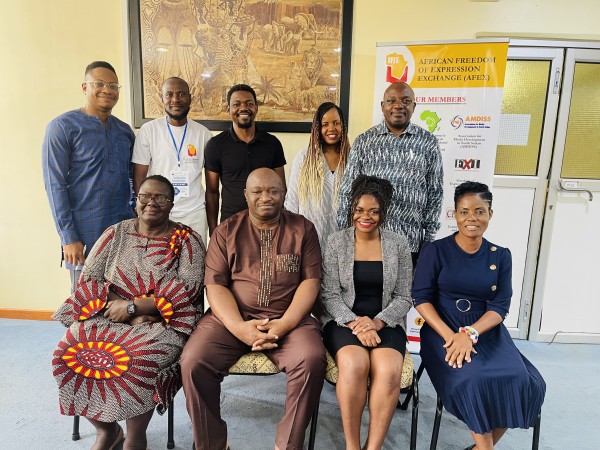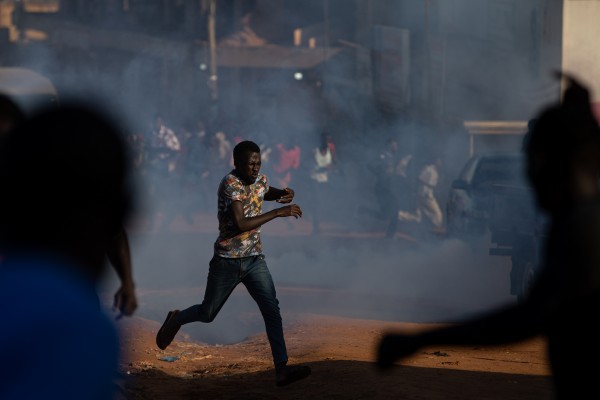A Ugandan journalist who had reported on the alleged involvement of a local politician in the theft of donated solar panels has been charged under the country’s criminal-defamation laws, according to the Human Rights Network for Journalists – Uganda (HRNJ).
The journalist, Ronald Ssembuusi of Uganda’s Central Broadcasting Service (CBS), had aired a story in November 2011 in which he claimed that Daniel Kikoola, a former district (known as an “LC5”) chairperson, was being investigated in connection with the disappearance, reported in local media, of 40 solar panels that the African Development Bank had donated to the town of Kalangala as part of a clean water campaign, HRNJ said.
According to the organisation’s report, Kikoola allegedly called the journalist repeatedly in the days following the broadcast, at one point warning Ssembuusi that “something strange would happen to him”. In February of this year, Kikoola filed a defamation suit in response to the report.
A local magistrate this week allowed the case against Ssembuusi, who was released on a 1 million shilling (approx. 300 EUR) bail, to proceed, a decision condemned by the HRNJ.
HRNJ-Uganda Programme Coordinator Wokulira Ssebaggala said in a statement that his organisation was “dismayed by the fact that the court ignores the current state of the law at hand and instead goes ahead to use it to charge people … We implore the court to stay the trial till the Supreme Court decides on the matter”.
The legal challenge to Uganda’s criminal defamation law, which was brought by four journalists, has been held up by the fact that the Ugandan Supreme Court has been laregly non-functional for nearly a year and a half, the HRNJ explained to the International Press Institute (IPI) on the phone.
The country’s last Judicial Service Commission (JSC), which is responsible for appointing justices to the Supreme Court, vacated office in November 2010, and the government of President Yoweri Museveni did not fulfill its constitutional mandate to appoint a new commission until February of this year, news reports said. At that time, five Supreme Court seats and a slew of other judicial positions were vacant.
The Chief Justice of the Supreme Court, Benjamin Odoki, in February called on the JSC to fill the empty seats in the judiciary as soon as possible, saying that the shortage was hindering the delivery of justice to the people, the government-owned New Vision reported.
While the reason for the delay remains unclear, the Ugandan courts have in the past issued several major rulings in favor of press freedom, including a widely celebrated 2010 Constitutional Court (one step below the Supreme Court) decision that struck down the country’s “seditious libel” laws.
In addition to pursuing an appeal of that law, the government is currently in the process of drafting a new media bill that would, among other provisions, reinstate a ban on publishing “false news” that was struck down by the Supreme Court in 2004, according to the Daily Monitor.
The HRNJ told IPI that the challenge to the defamation law was of particular importance, noting that individual journalists who criticised public officials appeared to be the overwhelming target of the law’s application.
IPI Press Freedom Manager Anthony Mills said: “We are concerned that the case against Mr. Ssembuusi may be an attempt to punish him for carrying out his work as a journalist. Criminal defamation laws everywhere – and Uganda’s is no exception – threaten the public’s right to information about those who represent them. We urge the Ugandan courts to ensure that the rights and roles of the media are respected.”
Uganda’s Penal Code (Sec. 179) defines defamatory material as that which is “likely to injure the reputation of any person by exposing that person to hatred, contempt or ridicule, or likely to damage any person in his or her profession or trade by an injury to his or her reputation.”
But not all defamation cases are treated equally: the president, government, and parliament are protected by absolute privilege. Under that umbrella, the law goes on to say, “it is immaterial for the purposes of this Chapter whether the matter [published] is true or false.”


